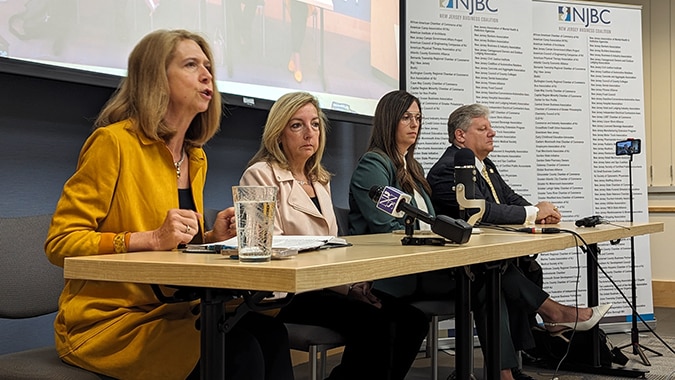This state’s current fiscal year will become 15 months long, and the budget process may well have to start from scratch, all thanks to the coronavirus pandemic. FY 2020 likely will end on Sept. 30 instead of June 30.
Gov. Phil Murphy, Senate President Stephen Sweeney and Assembly Speaker Craig Coughlin made a joint announcement on April 1 of their intention to extend the current fiscal year. Senator Paul Sarlo, the chairman of the Senate Budget and Appropriations Committee, added on Thursday that the committee would be crafting a new “coronavirus crisis” budget once New Jersey was past the healthcare emergency. He also canceled the budget hearings scheduled to take place between now and June 30.
Murphy, Sweeney and Coughlin said the move will allow them to focus on “the whole-of-government effort” to fight COVID-19. “This will allow the Administration and the Legislature to focus fully on leading New Jersey out of this crisis, and to allow for a robust, comprehensive, and well-informed budget process later in the year,” they said.
While having a balanced budget is part of the New Jersey State Constitution, the beginning and end of the fiscal year is set by statute, which can be changed legislatively and relatively quickly. Sarlo said he and Senator Steve Oroho, the ranking Republican on the committee, would sponsor the legislation to extend the income tax filing deadline and to lengthen the state fiscal year an additional three months.
NJBIA supported the move.
“The disruptions and financial hardships many New Jersey businesses and residents are enduring are simply overwhelming,” said NJBIA President and CEO Michele Siekerka. “The tax filing extension will allow many businesses to keep operations running and it will keep disposable income in the pockets of New Jersey’s workforce – at a time when many really need it.”
Without tax returns coming in before June 30, New Jersey would have no way of knowing what revenues will be for the coming year. The policy of social distancing and closing nonessential businesses to keep people as safe as possible has caused state tax revenues to plummet anyway, so revenue predictions were already going to be challenge.
“We don’t yet know the full dimensions of the financial consequences (of the pandemic) so the agreement to extend the current fiscal year to the end of September will give us a workable timetable to better understand our resources and craft a budget that addresses our critical needs,” Sarlo said.
